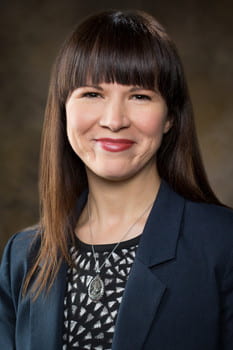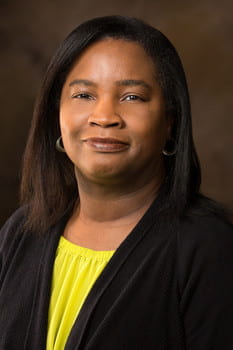Morning Mingle in the Ballroom
First Breakout Sessions
Gaming History: Mornin’ in Your Eyes (Ballroom)
Dave Fredrick, Director, TESSERACT; Jeannie Whayne, Professor, Department of History; Will Loder, TESSERACT staff
 |
 |
 |
| Dave Fredrick | Jeannie Whayne | Will Loder |
We will be presenting an overview of the History game, “Mornin’ in Your Eyes”. The game focuses on a key period in the Civil Rights movement, beginning with the March on Washington, August 28, 1963, for Jobs and Freedom and ending with the election of Lyndon Johnson as president in November 1964. It was a period marked by crucial events of the civil rights movement, including the murder of three civil rights activists in Mississippi, the enactment of the 1964 Civil Rights Act, and Fannie Lu Hamer’s dramatic speech at the Democratic National convention. The module will be narrative-driven, with approximately 2 hours of game play, delivered through WebGL, a format for 3D content supported natively by all major web browsers. In Mornin’ in Your Eyes, students will play through interlocking storylines that connect the national events and culture of the early ’60s with everyday life and attitudes in a fictional university town in the upper South. The goal is to help students understand, in a tangible way, the history of racism in America, in both its harder, explicit and softer, structural forms. Through Mornin’ in Your Eyes, students will navigate the range of local reactions and strategies in response to the national struggle, from overt racism to unreflective complicity to courageous, and often dangerous, resistance.
Engaging Students in an Online Environment (508/509) Christopher A. Shields, Ph.D., JD, Clinical Assistant Professor Sociology and Criminology, Project Manager – Terrorism Research Center, Internship Coordinator Sociology and Criminal Justice
Christopher A. Shields, Ph.D., JD, Clinical Assistant Professor Sociology and Criminology, Project Manager – Terrorism Research Center, Internship Coordinator Sociology and Criminal Justice
This session will focus on tips and strategies to enhance the instructors connection and engagement with students. The session will focus on several different components of online teaching in the process; from weekly sessions, discussions, online study sessions, and feedback to students.
Transparent Design: Easing Students into Open-Ended Humanities Assignments (513) Lora Walsh, Assistant Professor of English
Lora Walsh, Assistant Professor of English
“Transparent Design” has been shown to increase both academic confidence and a sense of belonging among undergraduates at primarily minority-serving institutions. In this presentation, I will give examples of two assignments that I redesigned and one assignment that I designed from scratch using the Transparent Design template. I implemented the template in my Introduction to Shakespeare course—a required course that students often find intimidating—and in my team-taught interdisciplinary humanities course for first-year honors students. I found that the template helped students get started and then persevere with assignments that they otherwise found frighteningly open-ended.
Second Breakout Sessions
Gamification in Blackboard (Ballroom)
Shelly Walters, Associate Director of Instructional Design & Support Services;
Elaine Terrell, Curriculum Designer for Student Success
 |
 |
| Shelly Walters | Elaine Terrell |
Enhancing Online Community with Your Students Using VoiceThread: An Alternative to Traditional Online Discussion Boards (508/509) Kevin P. Brady, Associate Professor, Department of Curriculum and Instruction, Graduate Program in Educational Leadership
Kevin P. Brady, Associate Professor, Department of Curriculum and Instruction, Graduate Program in Educational Leadership
VoiceThread (http://www.voicethread.com) is an online tool that can be used effectively to enhance online conversations or discussions. Instructors can upload content in the varied forms of graphics, videos, presentations, and articles in the form of PDF files. Both instructors and students can interact in a variety of ways, including text, audio with a microphone, or using a webcam. By providing multimodal methods of discussion, instructors can facilitate collaborative online teaching environments and enhance the “social online community” among students. Recent research suggest that students enrolled in online courses with a stronger sense of community often feel less isolated and have a greater satisfaction with their specific academic programs. This session will demonstrate how VoiceThread is being used as a online discussion board in a graduate-level course.
ProctorU (513)Carissa Knapp, ProctorU
Join representatives from ProctorU in this session where they’ll review how online proctoring can benefit faculty at the University of Arkansas. They’ll cover how the system works, best practices for using the platform, and what to expect in the exam analytics dashboard. Attendees will also have plenty of time to ask questions and engage with the ProctorU team if they’re interested in utilizing online proctoring.
Invited Session for New Online Course Developers
Third Breakout Sessions
Grading handwritten homework online in half the time: Gradescope, AI-assisted grading, and perfectly consistent rubrics (Ballroom) Carrie Beam, Ph.D., Clinical Assistant Professor, Department of Industrial Engineering
Carrie Beam, Ph.D., Clinical Assistant Professor, Department of Industrial Engineering
Gradescope is an online tool which allows students to submit handwritten homework online. We will show you how to grade lengthy handwritten calculus problems, award partial credit, set up custom perfectly applied rubrics which evolve over time, get a boost from artificial intelligence, and enable your teaching assistant to grade them. Oh yes – you can grade English papers and legal briefs as well.”
Ally as a Tool for Universal Design for Learning in Higher Education (513)
Suzanne Kucharczyk, Assistant Professor, Curriculum and Instruction – Inclusive Educational and Clinical Programs; Renee Speight, Research Associate, Curriculum and Instruction – Inclusive Educational and Clinical Programs.
 |
 |
| Suzanne Kucharczyk | Renee Speight |
This session will discuss the principles of Universal Design for Learning as they relate to Higher Education including the rationale that led our program to incorporate the Ally tool into our courses. We will discuss the learning supports provided by the Ally tool for undergraduate and graduate students. Finally, we will share how we use the tool to aid our instruction and provide tips related to its use.
Fourth Breakout Sessions
Using Video to Connect Students (Ballroom) Sarah Denison, Communication Faculty, J. William Fulbright College of Arts and Sciences
Sarah Denison, Communication Faculty, J. William Fulbright College of Arts and Sciences
Check out the presentation here.
During this presentation I will talk about my experiences bringing interpersonal communication to an online course through video discussions and feedback in Blackboard.
Rebuilding Online Courses in an OER World (513) Jim Gigantino, Professor & Chair, Department of History
Jim Gigantino, Professor & Chair, Department of History
Open Stax American History Book
Professor Gigantino will present on the History Department’s online course rebuilding efforts this year, including the integration of OER learning resources.
Lunch and Special Presentation in the Ballroom
Special Topic Conversation Tables
Student Panel
Lunch provided by TIPS
Fifth Breakout Sessions
Library Services and Resources for Online Teaching and Learning (Ballroom) Elaine Thornton, Open Education & Distance Learning Librarian, University of Arkansas Libraries
Elaine Thornton, Open Education & Distance Learning Librarian, University of Arkansas Libraries
Check out the presentation here.
This presentation will highlight library resources and services for online learners. Attendees will gain knowledge of electronic resources than can be used in courses and overview of services that benefit online learners, especially distant students.
Retiring your Red Pen: The Benefits of Video Recorded Feedback (509/509) Kate Shoulders, Associate Professor, Agricultural, Food and Life Sciences
Kate Shoulders, Associate Professor, Agricultural, Food and Life Sciences
What Do We Offer That YouTube Can’t? The Answer: Engagement. (514) Lynn Meade, Instructor, Department of Communication, Teaching Academy Fellow
Lynn Meade, Instructor, Department of Communication, Teaching Academy Fellow
This session will share ideas on how to use online discussion to promote deep learning. Specific ideas will be shared about how to create good discussion prompts, how to encourage open student-to-student communication, and how to create a sense of community in the class. The session will begin with a brief information giving session and then will move to table discussions.
Sixth Breakout Sessions
Project Based Course Design (Ballroom) David Jensen, Associate Professor, Mechanical Engineering
David Jensen, Associate Professor, Mechanical Engineering
Project-centric courses have a unique set of benefits and challenges in an online format. This presentation summarizes the construction and outline of a hands-on, project-based course, special considerations for transitioning from a traditional in-person model, and lesson learned and tips for implementation.
ProctorU (508/509)Carissa Knapp, ProctorU
Join representatives from ProctorU in this session where they’ll review how online proctoring can benefit faculty at the University of Arkansas. They’ll cover how the system works, best practices for using the platform, and what to expect in the exam analytics dashboard. Attendees will also have plenty of time to ask questions and engage with the ProctorU team if they’re interested in utilizing online proctoring.
An Engaged Instructor Equals Engaged Students (514) Phil Jones, Adjunct Instructor, Master of Science in Operations Management
Phil Jones, Adjunct Instructor, Master of Science in Operations Management
If the instructor is not actively engaged in the class and with the students, it is not reasonable to expect the students to be engaged in the class. This presentation will share a few ideas and practices which have worked to encourage students to be more than just spectators, but active participants in an online environment.
Afternoon Mingle in the Ballroom
Technology & Tool demonstrations, information tables, and advice for your courses.

